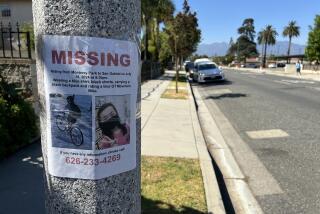Casino, Financial Measures Leading in Early Returns
A number of controversial measures were leading Tuesday night in early election returns in Los Angeles County, including establishment of a card club in Pomona, and some were locked in close votes, such as a citywide ban on oil drilling in Hermosa Beach.
Many other measures focused on financing as a result of California’s sputtering economy, with elections in many cities and school districts centering on how to keep critical services intact and how to stretch financing.
Contests were held Tuesday in 14 cities, 56 school districts, seven community college districts, two irrigation districts, seven county water districts, one library district and two special districts.
An extremely low turnout was expected in the elections without a presidential or a gubernatorial race. In 1993, when there were a number of statewide measures on the ballot, only about 32% of county voters went to the polls. This election has no special statewide measures, so the turnout is expected to be even lower.
In Pomona, voters went to the polls for the second time in a year to decide whether they want a card club in their city. On Tuesday night the measure was leading by a significant margin in the early returns. In April, a similar measure to allow two card clubs was defeated after a heated battle.
Another San Gabriel Valley vote garnering much attention was in Covina, where voters were deciding whether to keep the city’s utility tax. In the early returns, the measure was leading. In 1993, an entire City Council was recalled for approving the tax. Tuesday’s vote is only a referendum, but every member of the council has agreed to abide by the outcome.
In the South Bay, voters in the Manhattan Beach Unified School District were overwhelmingly supporting a $47-million property assessment. The funding would be used to renovate and repair six schools, all more than 30 years old, build a middle school, convert the existing middle school into an elementary school, and reopen two vacant elementary schools.
The measure for a citywide ban on oil drilling in Hermosa Beach was neck-to-neck in early returns.
In Hawthorne, two City Council seats were up for grabs. All seven candidates agreed that the top priority is rescuing the city’s budget. The council recently voted to disband its Fire Department. More than $1 million was saved by turning over fire services to the county.
In Lynwood, Mayor Louis Byrd and incumbent Councilman Louis J. Heine were leading their challengers in their bids for reelection. Debate in the city has centered on controversial water rate increases approved by the council this year and supported by Byrd and Heine. The challengers have contended that the increases are unnecessary and too costly.
In the Antelope Valley, observers kept a close eye on several school board races featuring a coalition of conservative Christian candidates, who ran on a group platform--”A Contract With Antelope Valley Families”--that condemned teaching about homosexuality and multiculturalism in the classroom and advocated campuswide moments of silence.
Of special interest was the race in the Antelope Valley Union High School District, where a religious right majority helped bring down the widely hailed California Learning Assessment System exams last year. Religious conservatives alleged that the CLAS tests invaded privacy and promoted anti-family values.
Early returns Tuesday showed conservative Kevin Wright Carney in contention for one of two seats. A victory by Carney would ensure that the board’s religiously based majority would retain control of the district. A second Christian right candidate, Irene Flores, was trailing.
In the Lancaster school district, two signatories of the “Contract With Antelope Valley Families” also held a slight lead over a third, more moderate candidate, based on early returns.
Times staff writers Henry Chu and Greg Krikorian contributed to this story.
More to Read
Sign up for Essential California
The most important California stories and recommendations in your inbox every morning.
You may occasionally receive promotional content from the Los Angeles Times.






